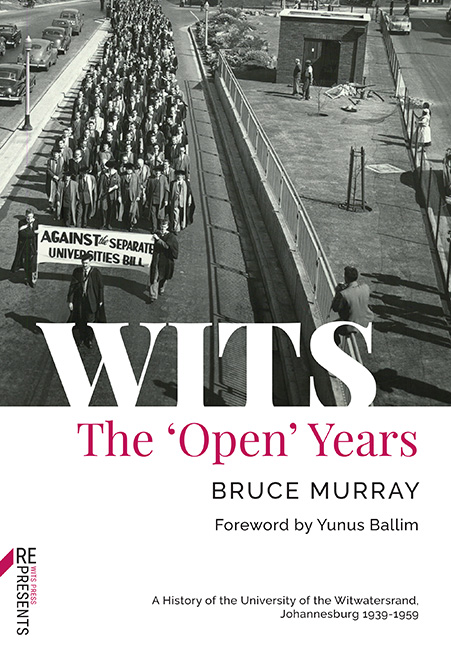3 - Wits and the Ex-Volunteers
Published online by Cambridge University Press: 24 November 2023
Summary
One of the achievements of which Wits is justly proud is the lead that it took in providing university education for ex-volunteers – ex-servicemen and -women at the end of World War II. In addition to maintaining its regular flow of civilian students, Wits mounted a formidable crash programme for ex-volunteers. Normal entrance requirements were relaxed, courses accelerated and doubled up, lectures duplicated, triplicated and quadrupled, and laboratories staged in relays well into the night. In all, Wits enrolled 2 825 ex-volunteers, more than twice as many as all the other South African university institutions combined. Although there was a substantial dropout rate among those who either found they could not readjust to the demands of the classroom or could not resist lucrative job offers, well over half the ex-volunteers received degrees or diplomas and certificates. By any measure, it was a remarkable accomplishment. For the University, the influx of ex-volunteers was a unique phase in its history. The campus was utterly transformed as virtually overnight the student population almost doubled in size, and school leavers suddenly found themselves in the same classrooms as veterans of the North African and Italian campaigns. Not only were the ex-volunteers more mature – the large majority already well into their twenties – they were also overwhelmingly male, with the proportion of women students consequently falling to under 20 per cent of the total. What changed, above all, was the atmosphere at Wits. The excitement as the ex-volunteers arrived was palpable – in the description of one contemporary, ‘the joint was jumping’ – and they brought to Wits a new sense of exhilaration and purpose-fulness. For those who experienced it, the era of the ex-volunteers was the golden age of Wits, even if it was a sometimes daunting one for younger students fresh from school.
The influx of ex-volunteers greatly intensified the pressures on the University’s already overstretched resources, but it elicited a new willingness in negotiating those pressures. In the faculties of Science, Engineering, Architecture, Medicine and Dentistry, the squeeze was such that first-year courses were duplicated. Instead of being spread out over the entire academic year, they were concentrated and repeated in half-year sessions, with students taking half their courses in the first half of the year and the remainder in the second.
- Type
- Chapter
- Information
- WITSThe 'Open' Years, pp. 58 - 83Publisher: Wits University PressPrint publication year: 2022



